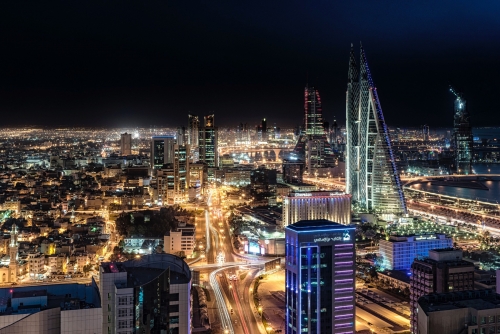COVID hurts hotel, transport sectors most
TDT | Manama
Bahrain’s Hotels & Restaurants, and Transport & Communications sectors emerged as the hardest hit by the market disruptions related to COVID-19 in Q2, which has brought the global economy to a standstill. The data is as per the Bahrain Economic Report for the second quarter of 2020, published by the Ministry of Finance and National Economy.
Oil and Government Services, the report said, were the only sector that showed some resilience amid the unprecedented downturn. Also helping the Kingdom in the situation was a financial and economic stimulus package launched in March 2020 under the leadership of His Majesty King Hamad bin Isa Al Khalifa, which exceeded in value of BD4.5 billion.
Expectations are high for the year-over-year decline in GDP in the third quarter to remain small as indicators pointing to a recovery in many sectors, the report said. Currently, Bahrain’s real GDP is forecast to decline by around 5.8pc in 2020 and to rebound in 2021. In the second quarter, the Kingdom’s real GDP contracted by an estimated 8.9 pc, and 19.5pc in nominal terms, hurt by market disruptions.
Non-oil economy drop 11.5pc Affecting the GDP performance was an 11.5 pc decline in the non-oil economy in real terms, which translates to 14.7pc in nominal terms, with all of the sectors in private industry recording decline inactivity.
The decline was offset partially by a 3.2 pc real growth in the oil sector, helped by production increases, though it declined in nominal terms to 47.9pc as global oil prices dropped to their lowest level in more than two decades in April 2020. Overall oil production levels rose during the quarter by 5.9pc compared to Q1 2020, reaching an average of 207,646 barrels per day (b/d).
The electricity sector grows Electricity and water sector and the government services sectors were the two sectors which grow during the second quarter of 2020. During the period, the Electricity sector grew by 34.9pc and the services sector edged up by 0.1pc.
Hotels & Restaurants sector dip 61.3pc Most affected was the Hotels & Restaurants sector, which recorded a decline of massive 61.3pc, mainly due to travel restrictions. The number of visitors declined by 99.1pc through the King Fahd Causeway, 95.9pc through the Bahrain International Airport and 77.6pc through the ports, the report said.
During the period, the average occupancy rate at five-star hotels declined by 69pc while the average occupancy rate in four-star hotels dropped by 74pc. The restrictions also impacted badly the Transport & Communications sector, which posted an estimated 47.4pc YoY contraction in Q2, 2020.
The report, however, expects a rebound in the sector in the upcoming third quarter with the lifting of travel restrictions. Manufacturing The manufacturing sectors, the report says, had a mixed the second quarter with Aluminium Bahrain (Alba) reporting a 23.8pc YoY increase in its output to 378,558 metric tons, as productions in Bapco fell by 14.9pc, Banagas by 4.3pc and GPIC by 0.9pc.
The report also points out that the gap in the percentage of contribution to GDP between the Oil and non-oil sectors widened during the quarter. The Financial Corporations sector remains the largest non-oil sector, contributing 16.7pc to the GDP, followed by the Manufacturing sector (14.9pc) and the Government Services sector (12.5pc).
The remaining non-oil sectors experienced varying rates of decline with the Social and Personal Services declining by 15.4pc, Trade by 9pc, Real Estate and Business Activities by 7.9pc and the smallest rate of the reduction was recorded by the Construction sector at 2.1pc Infrastructure spending was also on the rise in the first six months of 2020, with the tender board awarding 769 tender worth over US$1.7 billion.
Inflation subdued Inflation, the report said, remained subdued during the quarter in line with regional and international trends, with the average inflation during Q2 2020 remaining at -3.2pc. Lending increases During the quarter, lending to the private sector rose by 2.8pc annually to BD5.4bn, and individuals by 3.8pc to BD4.5bn.
Lending to the government decreased by 3.9pc at the end of June 2020 compared to the same month in June 2019. Deposit growth turned mildly negative in June with a -0.5pc YoY change, hurt by a fall in foreign currency deposits.
Borrowing cost drops The report also points out a the decline in the cost of borrowing during the quarter, particularly, in personal loans which averaged 4.6pc in June, a drop from 5.1pc a year earlier. The monthly average during the first half of the year was 4.8pc as compared to 6.1pc a year earlier.
Related Posts

